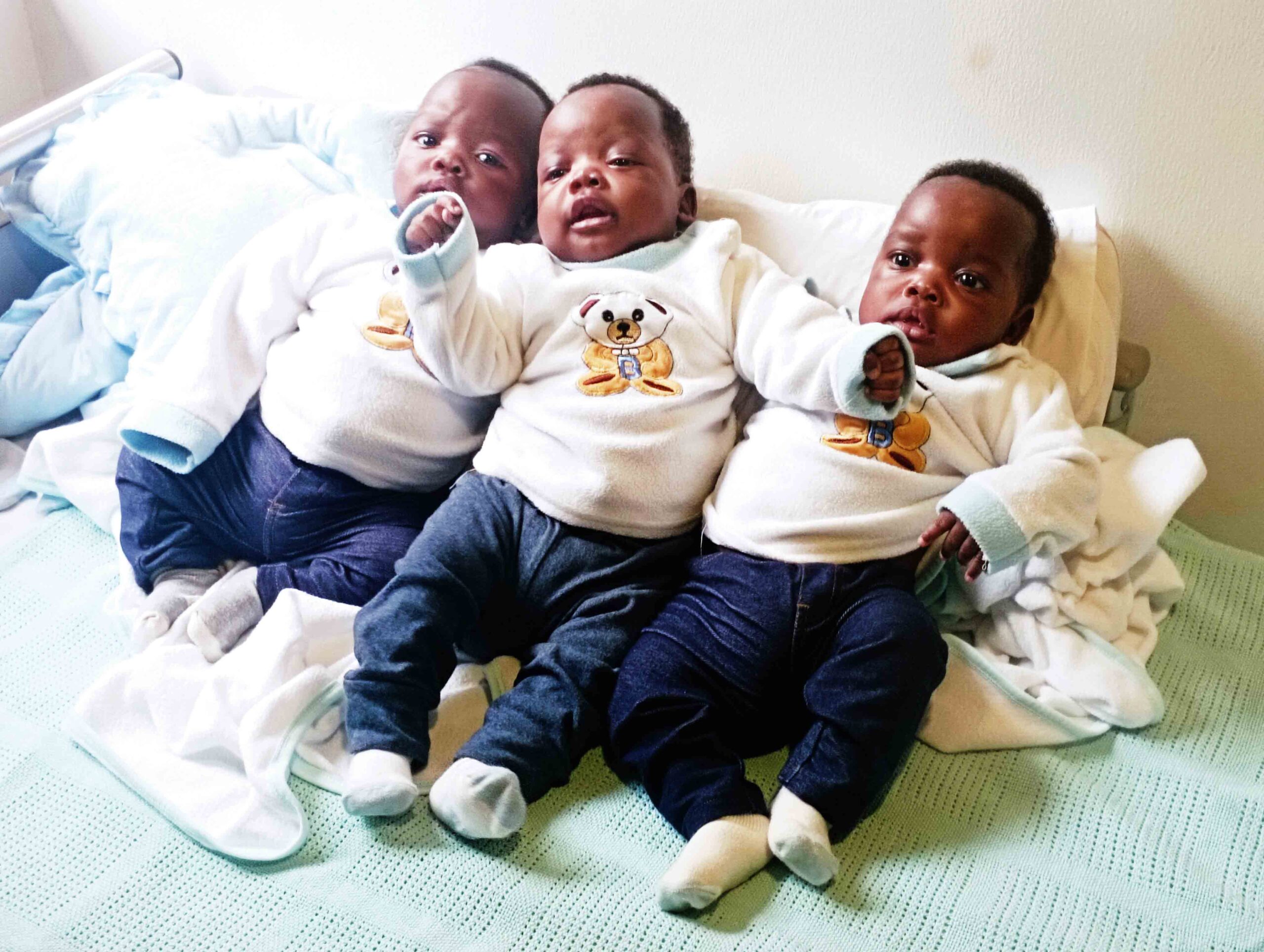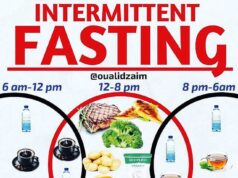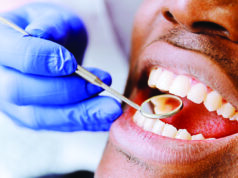By Beatrice Nakibuuka
“I used to be called Mama Zero but now I am a mother of three. Isn’t God amazing? I will sing His praises forever. Who knew I would have children?” the excited Madina Mbabazi says.
She had brought her children for vaccination at Women’s Hospital International and Fertility Centre, Bukoto, Kampala when we met.
Two girls aged about 16 years old accompanied her to the Children’s Ward, each carrying a baby heavily covered in sky-blue neat baby shawls.
Mbabazi is greeted by almost everyone at the hospital and welcomed in.
Curious as the journalist I am, I suspected there was something unique about this woman. So, I decided to discover what it is.
I approached Mbabazi, introduced myself and engaged her in a conversation which she quickly picked up and gladly shared her story.
“All women who have never given birth should never lose hope. They should trust in God and also come to Women‘s Hospital for their miracle,” Mbabazi sated before delving deep into her story.
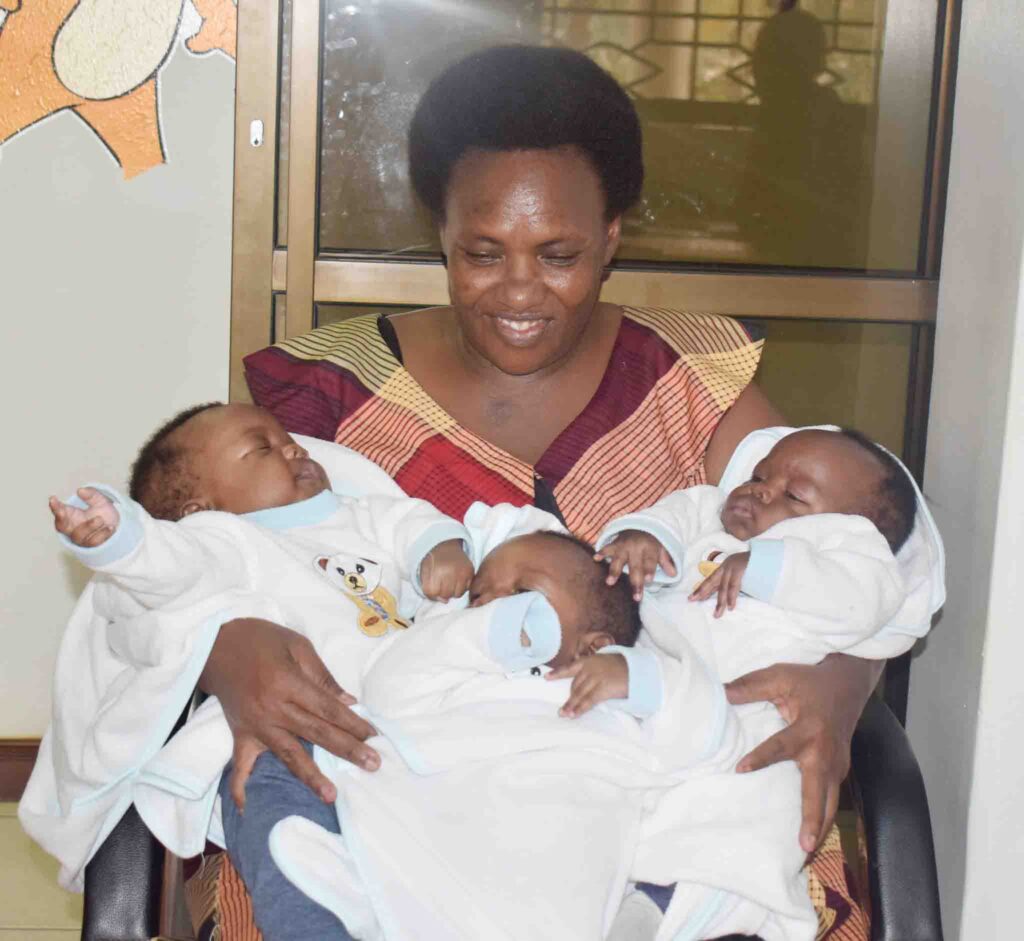
Who is Mbabazi?
Mbabazi is a 54-year-old woman, born and raised in Kalungu district, Western Uganda. She was the only daughter in a family of eight children.
At 17 years old, Mbabazi was wedded in Church. But nine years later, she had not born any fruit from her own womb.
Abused and maltreated by her sisters-in-law for not being able to bare a child, she quit the marriage.
“My husband’s relatives were so rude to me. They said I ate their brother’s food for no reason because I did not bear him any child.
“They brought me unbearable misery and I was psychologically affected. I decided to return to my parent’s home,” Mabazi recalls.
Second marriage
Four years after quiting her first marriage, Mbabazi found herself in love again and got married.
“The second one had three children from another woman and they were very young. So, I took care of them and we spent 10 years together, but I still did not conceive,” she recalls.
Unfortunately, just like in her first marriage, her in-laws were so bitter with her for not conceiving.
Aware of her dilema, some women in her neighbourhood advised her to seek help from traditional healers.
Amidst her painful journey of childlessness, Mbabazi was lucky to have the financial backing from her father.
She visited every doctor people recommended to her, but her story never changed.
“My father supported me because he wanted me to have a child. He was bothered by my childlessness.
“Though the witchdoctors took a lot of money from us, he was there until one wanted to have sex with me. I could not bear that so I gave up on them,” she adds.
With all there efforts not bearing fruits, Mbabazi had to leave the marriage again and return home.
At home, fed up with relationships and marriages, Mbabazi’s world got even more distressing when her father died, leaving her in desolation.
Her brothers advised her to stop trying too hard because she could contract some diseases in the process.
“They tried to console me that it is okay to live without children, but I became the talk of the village. I lived in shame,” Mbabazi says, adding:
“It is very hard to be barren in a land where every woman gives birth. Sad, emotionally distressed and fed up with such talk, I sold all my belongings and left my home and headed for Kampala.”
When reached Kampala, she stayed in Nansana for a few months before connecting with a village mate who was staying on Kiyindi Island.
At the island, she ventured into business, selling milk and baked cakes to sustain herself. She also started attending Church and got born-again.
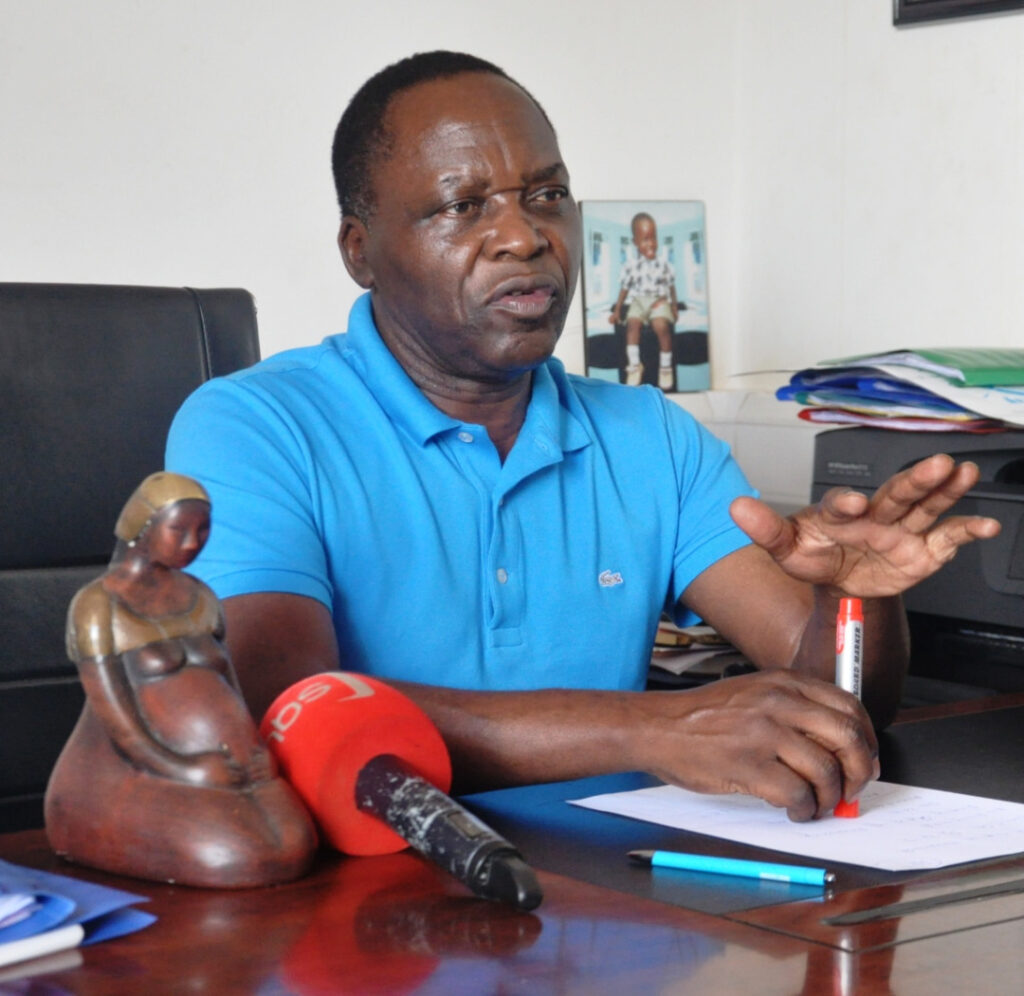
Meeting doctor Sali
One day, two women came to her premises and they talked about Dr Edward Sali and how he helps women conceive no matter what they have gone through.
“One of the women asked the contact of the doctor and the other wrote it on a piece of paper.
“I did not show that I was interested in the number but I asked to see what the number was. I copied it and passed on the paper to the other woman.”
When the women left, she called the number and Dr Sali picked. He asked her to visit him at his hospital in Bukoto, Kampala.
In 2014, Mbabazi made her first visit to the hospital. Unfortunately, she did see Dr Sali. She made a second attempt a short while later, but still did not see the doctor.
Like the saying goes:“Patience pains but pays.” Those failed attempts did not discourage Mbabazi.
“When I visited for the third time, I saw a man walking pass as I sat in the waiting area, with the name tag on his coat labelled Dr Sali. I knew he was the one. So, I followed him.
“He went through the lift and, unfortunately, I could not catch up with him. The woman at the reception then asked me what I wanted.
“She scheduled an appointment for me upon payment of consultation fee,” Mbabazi narrates.
When Dr Sali examined her, he found that she had several fibroids which he removed in an operation. After three months, Mbabazi returned and was operated on again.
“I got about seven operations because of the fibroids. Then tubes were blocked and all the years until 2021 I was on treatment to correct these problems.”
When she was set for conception, Dr Sali prepared her an IVF (In Vitro Fertilization), but several attempts failed even after treating the underlying problems.
“The doctor attempted several times to help me conceive but all his efforts were in vain. Fortunately, I did not lose hope. I believed that I would have a baby some day,” Mbabazi says.
Prayers answered
In April 2022, the good news finally came. Mbabazi had conceived. Amidst her morning sickness and vomiting, Mbabazi was never bothered.
The knowledge that she was finally going to be a mother was overwhelming.
“I took the necessary caution as the doctor had advised and at six months of the pregnancy, I was told that I was going to be a mother of three boys. At seven months, the cervix was open because of the weight of the babies,” she recalls.
The doctor then advised her to stay in hospital until her pregnancy clocked nine months, to save her from the troubles of travelling long distances to reach the hospital.
Because of the numerous scars that resulted from the fibroids treatment, Mbabazi delivered her babies by Cesarean section on January 17, 2023.
Cautious of the risks she could face if she travelled with the children back to the island in her delicate state, Dr Sali rented her a house in Kisaasi, Kampala for three months.
Mbabazi says she believes Dr Sali is heaven sent because he restored her joy. I am now a joyful mother. I can testify that God is a Redeemer,” she says.
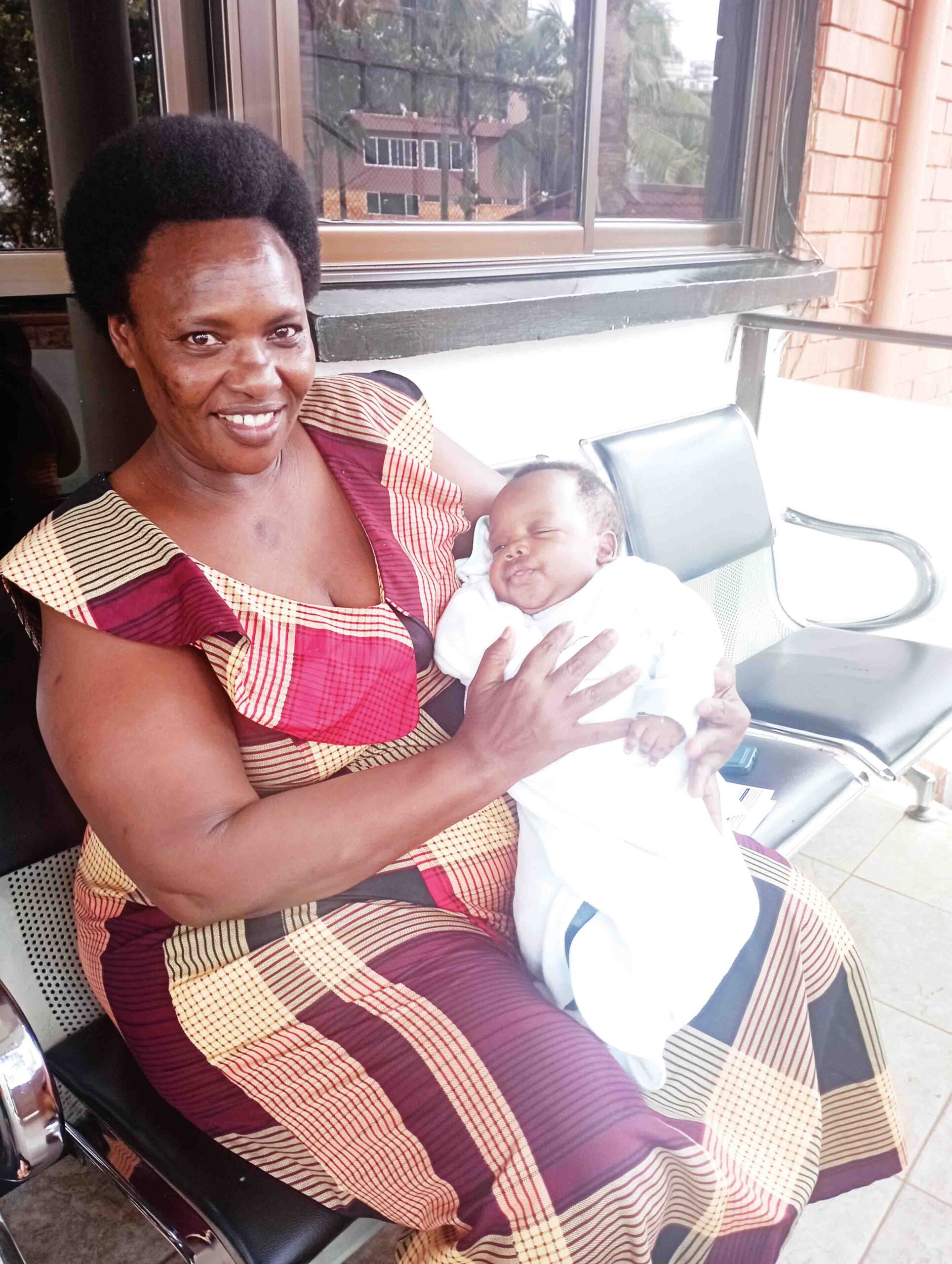
Causes of infertility
Like Mbabazi, there are several women in our society who have failed to conceive.
While some of these have been helped, their number still remains a drop in an ocean.
Infertility is a huge problem globally. According to Dr Sali, about 15 per cent of women that suffer miscarriages in Uganda develop blocked tubes.
This contributes about 50 per cent of infertility among women in the country.
Dr Sali says: “Infections after termination of pregnancies can also lead to failure to conceive in many women.
“Some fibroid operations can instead cause tubal blockage. Low sperm count in men contributes 30 per cent of impotence in men.”
Highlighting the case of a girl who underwent premature menopause at 19 years, Dr Sali notes that such abnormalities also cause infertility in women.
“Polycystic syndrome (PCOS), a problem with hormones that affects women during their childbearing years also causes blocked tubes.
“Reports reveal that many women suffer this hideous infection unknowingly, but its causes are unknown”.
Assisted reproduction
Hormonal treatment, one of the assisted reproductive techniques, is useful for women that have irregular periods and have ovulation problems.
Intra Uterine Insemination (IUI) is applied in cases of men that suffer erectile dysfunction.
It is also an option for men who want to continue having children even when they are away on long-term missions like military duties.
In such a case, a sample of the man’s sperms is drawn and kept safe, and inseminated into his wife’s uterus at an agreed period.
Men who suffer from scrotal cancer, leukemia and cancer of the pancreas usually have their sperms drawn before they undergo treatment, if they want to continue reproducing.
The commonest method of assisted reproduction is the In-Vitro Fertilization (IVF), which is used in cases when a woman has blocked tubes or a man has low sperm count.
The IVF process
In an IVF, eggs from a female uterus and male sperms are collected using an Intra Cytoplasmic Sperm Injection, and put together in a test tube to fertilize and form an embryo.
The intra cytoplasmic sperm injection is part of an IVF treatment cycle where a single sperm is injected into each egg to assist fertilisation using very fine micro-manipulation equipment.
After three days, the embryos that develop are then transferred into the womb through a catheter in the cervix using an ultrasound.
In multiple pregnancies, Dr Sali says some foetuses shrink from the womb and a few remain.
He adds: “As the pregnancy progresses, the uterus may become overloaded and the cervix opens so the mother is at risk of losing the babies.
“We usually recommend a stitch to close the cervix or a bed rest in such cases.”
The cost of undertaking an IVF depends on a number of factors. But the whole process may cost you about US$5,000 which is equivalent to Shs18.5 million.
A couple may pay less or more, depending on the complexity of their case.
















